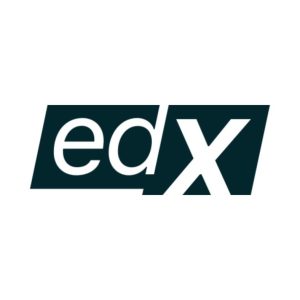LinuxFoundationX: Introduction to Kubernetes on Edge with K3s
|
Learn the use cases and applications of Kubernetes at the edge through practical examples, hands-on lab exercises and a technical overview of the K3s project and the cloud native edge ecosystem.
About this course
There is a growing interest in running software at the edge. This course takes a deep dive into the use cases and applications of Kubernetes at the edge using examples, labs, and a technical overview of the K3s project and the cloud native edge ecosystem.
This course is designed for those interested learning more about Kubernetes, as well as in deploying applications or embedded sensors in edge locations. While learners do not need a Kubernetes certification for this course, experience with a Linux operating system and shell scripting will be beneficial. Programming experience is also not strictly required. Learners will need to be able to run Docker on their computer.
In this course, you will learn the use cases for running compute in edge locations and about various supporting projects and foundations such as LF Edge and CNCF. The course covers how to deploy applications to the edge with open source tools such as K3s and k3sup, and how those tools can be applied to low-power hardware such as the Raspberry Pi. You will learn the challenges associated with edge compute, such as partial availability and the need for remote access. Through practical examples, students will gain experience of deploying applications to Kubernetes and get hands-on with object storage, MQTT and OpenFaaS. It also introduces the fleet management and GitOps models of deployment, and helps you understand messaging, and how to interface with sensors and real hardware.
This course will enable developers to learn about the growing impact the cloud native movement is having on modernizing edge deployments. They will also learn the challenges of deploying Kubernetes on the edge through a concrete example via the k3s project.
At a Glance:
Institution: LinuxFoundationX
Subject: Computer Science
Level: Introductory
Prerequisites:
You should be familiar with the Linux Operating System and how to use common CLI commands to pass arguments, make use of configuration files, and to configure networking.
A basic understanding or some prior experience with deploying applications to Kubernetes would be helpful to you.
You will need to be able to run Docker on your computer.
Language: English
Video Transcript: English
Associated skills:Application Deployment, Linux, Management, Remote Access Systems, Cloud-Native Computing, Message Queuing Telemetry Transport (MQTT), Edge Computing, Object Storage, Kubernetes, Docker (Software), Shell Script
User Reviews
Be the first to review “LinuxFoundationX: Introduction to Kubernetes on Edge with K3s” Cancel reply
Related Products

LinuxFoundationX: Secure Software Development: Requirements, Design, and Reuse
Learn the security basics that allow you to develop software that is hardened against attacks, and understand how you can reduce the damage and speed the response when a vulnerability is exploited.

DartmouthX, IMTx: C Programming: Getting Started
Start learning one of the most powerful and widely used programming languages: C.

LinuxFoundationX: Introduction to DevOps and Site Reliability Engineering
Learn how to start transforming your organization using the principles and practices of DevOps.

RedHat: Fundamentals of Red Hat Enterprise Linux 9
This course is designed to equip students with the skills and knowledge needed for effective administration of Linux systems, with a particular focus on Red Hat® Enterprise Linux® . It covers fundamental Linux concepts, command-line tools, system management, and network configuration, using both the command-line interface and web console.

LinuxFoundationX: Introduction to Open Source Networking Technologies
Learn technical fundamentals needed to adopt SDN, NFV, disaggregation, orchestration, network automation, and modern networking. Discover use cases and technical options for open networking. Plus: learn more about The Linux Foundation networking projects.

HarvardX: Data Science: Productivity Tools
Keep your projects organized and produce reproducible reports using GitHub, git, Unix/Linux, and RStudio.




There are no reviews yet.